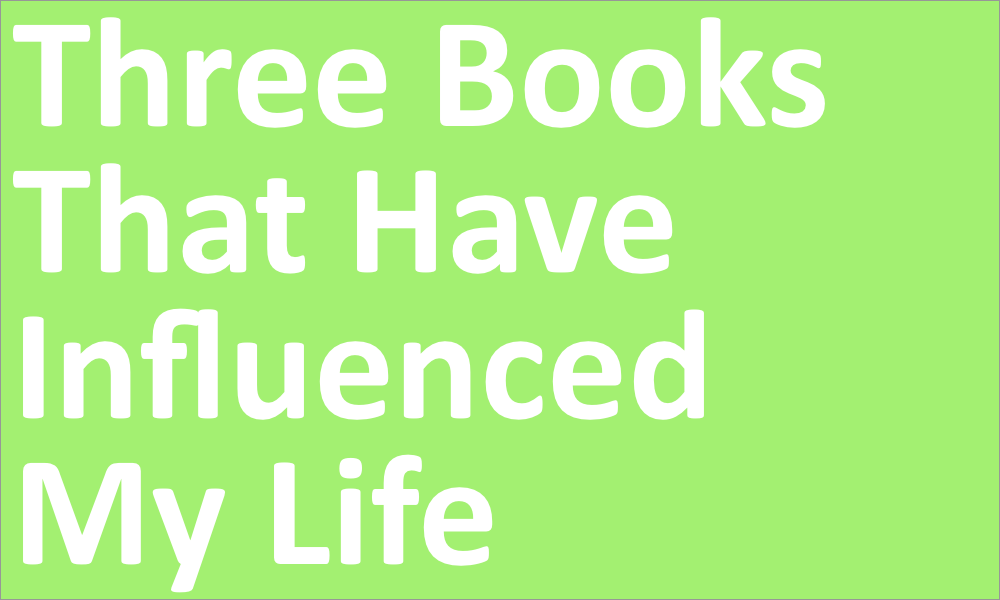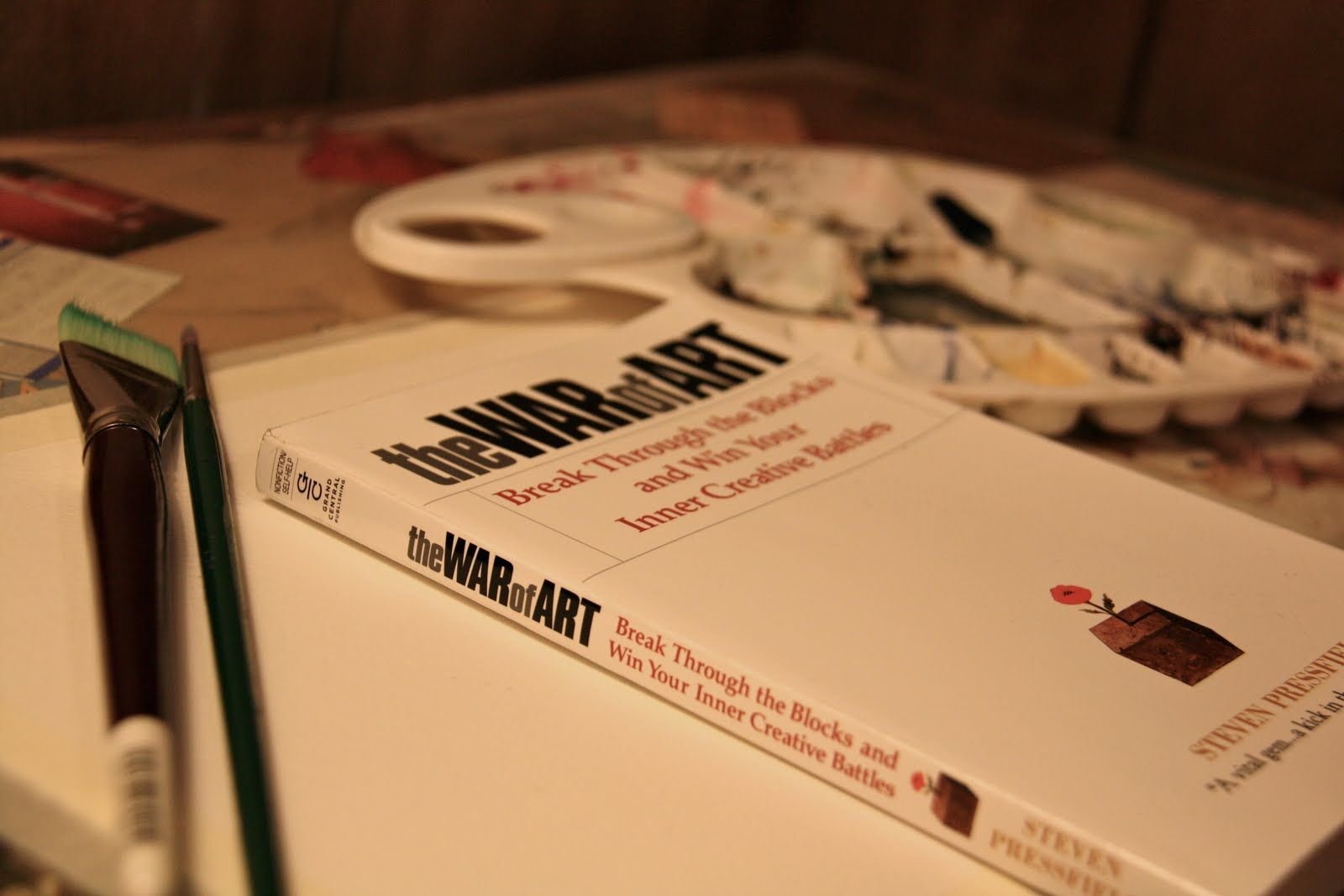
I’ve been reading Tim Ferriss’s Tribe of Mentors recently, which is a collection of interviews of “the world’s top performers,” and one of the questions he poses to the interviewees is:
What is the book (or books) you’ve given most as a gift, and why? Or what are one to three books that have greatly influenced your life?
I’m certainly not one of the world’s top performers, but this still got me thinking about how I would answer the question. It actually ended up being pretty easy to come up with the three books that have influenced me most (though I'm sure I'll think of some other ones as soon as I hit publish 🙃). I would love to hear how other Steemians would answer this question, so please use the prompt above and write a post of your own if you have some books to recommend!
Without further ado, here are three books that I can honestly say have influenced my life.
Quiet: The Power of Introverts in a World That Can't Stop Talking by Susan Cain
I must have driven my parents crazy as a kid — I had endless energy and could never sit down. I broke my arm three times, played a ton of sports, and was generally a goofball. But as I got older, and especially during those awkward years in middle school, I started getting kind of quiet.
Particularly in the United States, I feel like being quiet is treated as a character flaw that needs to be corrected. Successful people are outgoing and personable, ready to take on any challenge head on. It’s hard not to feel that everyone should have the natural urge to want to go out and socialize every weekend; that the desire to stay in and spend some time to yourself is an urge we should all fight.
As an adult, I’ve come to accept my quiet personality much more, and a big reason for this is because of the book Quiet by Susan Cain. I randomly picked up a copy of this book in an airport bookstore, started reading it on the plane, and got so into that I’m pretty sure I finished it that day.
Here’s part of the excerpt from Amazon:
In Quiet, Susan Cain argues that we dramatically undervalue introverts and shows how much we lose in doing so. She charts the rise of the Extrovert Ideal throughout the twentieth century and explores how deeply it has come to permeate our culture. She also introduces us to successful introverts—from a witty, high-octane public speaker who recharges in solitude after his talks, to a record-breaking salesman who quietly taps into the power of questions. Passionately argued, superbly researched, and filled with indelible stories of real people, Quiet has the power to permanently change how we see introverts and, equally important, how they see themselves.
Basically, this book takes a look at what it means to be an introvert. The part that has stood out most to me over time, is one study that identified babies as “highly reactive.” About 20% of babies respond to unpleasant stimuli with greater distress than other babies, and this same 20% generally grows up to be introverted.
Reading about this study gave me a better understanding for the first time of why I might be more quiet and reserved than other people. It’s not that I have some sort of character flaw that makes me want to avoid social situations, it might just be that my experience of the world is more intense than other people's. Deciding to stay in and avoid certain social situations is a way to avoid overstimulation, which can be kind of intense as an introvert.
Quiet also talks about what introverts tend to be better at. Here’s a good quote from this article: “that same taste for solitude can bring with it an ability to focus for long periods of time that is necessary to becoming a great musician or scientist or businessperson. Introverts listen better, they assess risks more carefully, they can be wiser managers.”
Overall, I think this book is just a must read for anyone who feels that they’re an introvert, or for someone who wants to understand more about what it’s like to be one. I’m so happy I found it!
So Good They Can't Ignore You: Why Skills Trump Passion in the Quest for Work You Love by Cal Newport
This book helped me sort out something that I was trying to understand in my twenties. The advice to “follow your passion” always felt a little bit shallow — an exciting concept compared to just finding a good job and staying in it for life, but lacking in actual details of how to find a fulfilling career. I think “be so good they can’t ignore you” is a better piece of advice to attach oneself to. It comes from Steve Martin — here’s some more context:
"Nobody ever takes note of my advice, because it's not the answer they wanted to hear . . . What they want to hear is ‘Here's how you get an agent, here's how you write a script,' . . . but I always say, ‘Be so good they can't ignore you.' "
So Good They Can’t Ignore You takes a look at what it takes to become extremely good at something, and why that skill will bring with it professional fulfillment. Here’s a good quote from the top Amazon review:
. . . while most people would love to have a job that allows them to be creative, make an impact on the world, and have control over how they choose to spend their time, jobs like that are rare and valuable, and the only way to get something valuable is to offer something in return. And the only way to be in a position to do that is to master a difficult skill. Passion doesn't waive the laws of economics, and if it's not difficult it won't be rare.
Cal Newport’s writing style can be a little bit dry, but that’s part of why I like it. He’s not a personal development guru trying to convince people why his new product will enable them to fulfill their dreams, he’s a computer science professor that is using studies and interviews to uncover why some people are successful and how they got there.
The War of Art by Steven Pressfield

It’s been several years since I read this book, but I still remember that it had a big impact on how I view the process of creating something. It’s easy to picture creative geniuses locked in their offices, with timeless brilliance pouring from them onto the page without any effort. The War of Art makes the argument that creating good art is similar to creating anything else of value — it takes consistent work and dedication.
This book is a quick read, but well worth the time. I find it calming to see someone lay out the path to creating something so clearly — it’s not about finding some spark of genius within ourselves, it’s about showing up every day and giving ourselves the opportunity to create.
There’s a quote form So Good They Can’t Ignore You that reminds me of The War of Art. Here they are side by side (SGTCIY then TWoA):
Listening to Tice talk about his routine, I was struck by his Martin-esque focus on what he produces. As you’ll recall, he’s happy to spend hours every day, week after week, in a barely furnished monastic room, exhausting himself in pursuit of a new flat-picking technique, all because he thinks it will add something important to the tune he’s writing. This dedication to output, I realized, also explains his painful modesty. To Jordan, arrogance doesn’t make sense. “Here’s what I respect: creating something meaningful and then presenting it to the world,” he explained.
The artist must be like that Marine. He has to know how to be miserable. He has to love being miserable. He has to take pride in being more miserable than any soldier or swabbie or jet jockey. Because this is war, baby. And war is hell.
Personally I can’t really imagine that level of dedication. I’m still just starting to cultivate an ability that I think will be valuable, but I think it’s helpful to think of creating something as a war that requires focus and dedication. Even if we choose not to take part in the war, we can better appreciate the art around us knowing what it took to make.
Thanks for reading and, if you choose to read them, I hope these books will be as helpful for you as they were for me! If you have any book recommendations I’d love to hear about them in the comments. 🙂



